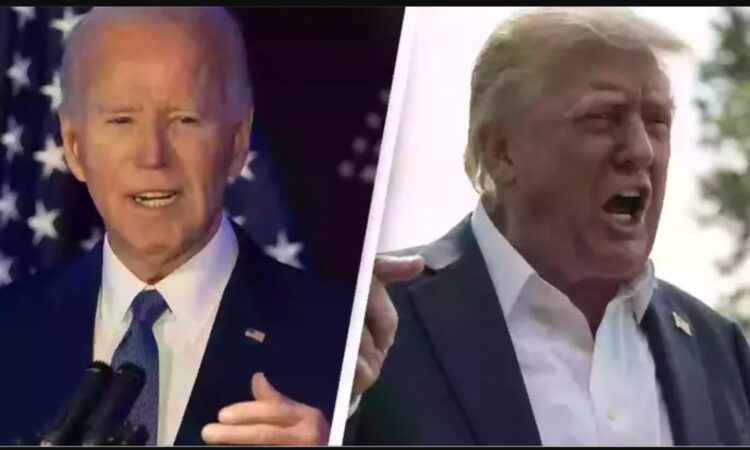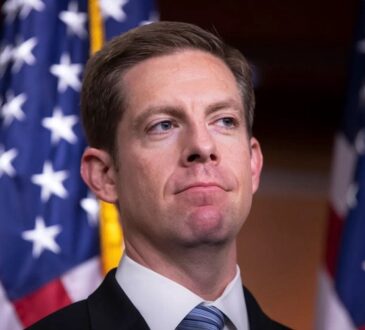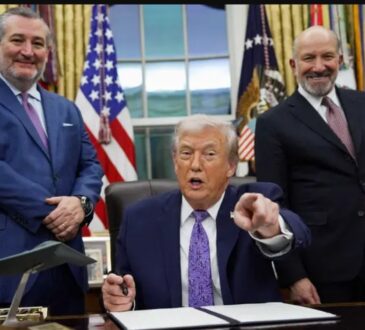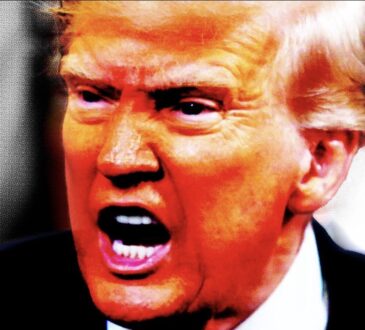Biden makes shocking admission on last minute pardons amid Trump ‘voiding’ them for one crucial ‘mistake’

Former U.S. President Donald Trump has launched a fiery attack on his successor Joe Biden, accusing him of not even being aware of the presidential pardons he issued during his final days in office.
Trump claimed Biden used an autopen—a machine that replicates a person’s signature—to sign off on pardons without understanding who he was pardoning. Trump declared those pardons invalid and even accused others in Biden’s orbit of manipulating the process.
Just before leaving office, Biden issued a large number of pardons and commutations. These included several high-profile and controversial names, such as members of his own family—his brothers James and Frank Biden, his sister Valerie Biden Owens, and their spouses—as well as public figures like Dr.
Anthony Fauci and Mark Milley, the former Chairman of the Joint Chiefs of Staff. Also among the pardoned were individuals connected to the investigation into the January 6 Capitol riot, which had targeted Trump and many of his allies. Biden also granted clemency to Leonard Peltier, an indigenous activist who had been in prison for nearly five decades for the murder of two FBI agents. Peltier’s sentence was commuted to allow him to serve the rest of it at home.
Biden explained that his motivation behind many of the pardons was to protect people from what he called constant political threats, harassment, and public pressure. He believed some of them were being unfairly targeted, particularly his family members, and he wanted to shield them from future legal attacks.
Trump, however, strongly disagreed with the entire process. He responded on his social media platform Truth Social, stating that all of Biden’s pardons were “void” because they weren’t personally signed by Biden himself. He mocked the use of the autopen, suggesting Biden had no idea what was even being signed in his name. Trump took it a step further by implying that whoever operated the autopen was the actual person in charge, calling them “the real President.” He accused the people who benefitted from the pardons—especially those connected to the January 6 investigation—of destroying evidence and using Biden’s inattention as cover for their own protection.
In response to this criticism, Biden admitted that yes, he had authorized the use of an autopen to sign the pardons. However, he pushed back strongly against Trump’s claims, stating in an interview with *The New York Times* that he had personally set the rules for who qualified for a pardon or commutation. He acknowledged that he didn’t review each individual case name-by-name but said the decisions were based on standards he created and approved. “I made every decision,” Biden said, defending the process as lawful and thoughtful.
Biden also brushed off Trump’s claims that he was unaware or incapable, suggesting that Trump simply doesn’t understand how government processes work or is trying to distract from his own issues. Biden said that Trump’s thinking reflected a lack of focus, and dismissed the idea that using autopen meant he wasn’t involved. The use of autopen is not new and has been used by other presidents, including George W. Bush and Barack Obama, for official documents.
Still, the issue has raised some eyebrows. Due to the scale and timing of the pardons—thousands of commutations and dozens of full pardons issued just days before Biden left office—some have questioned whether the process was handled with enough oversight. As a result, the White House has confirmed that an internal review is underway. Ed Martin, who heads an anti-weaponization oversight group, is reportedly leading a probe to determine whether Biden was fully competent and in control of the process, or whether others may have taken advantage of his authority by pushing through pardons without proper scrutiny.
The controversy has only deepened the divide between Trump and Biden supporters. Trump’s allies argue that the use of autopen proves Biden is unfit or out of touch, while Biden’s team insists the process was legal, guided by clear policies, and no different in principle from how past presidents have handled large batches of clemency decisions. The debate over the pardons now joins a long list of political battles between the two men, even as the nation heads into another contentious election season.




